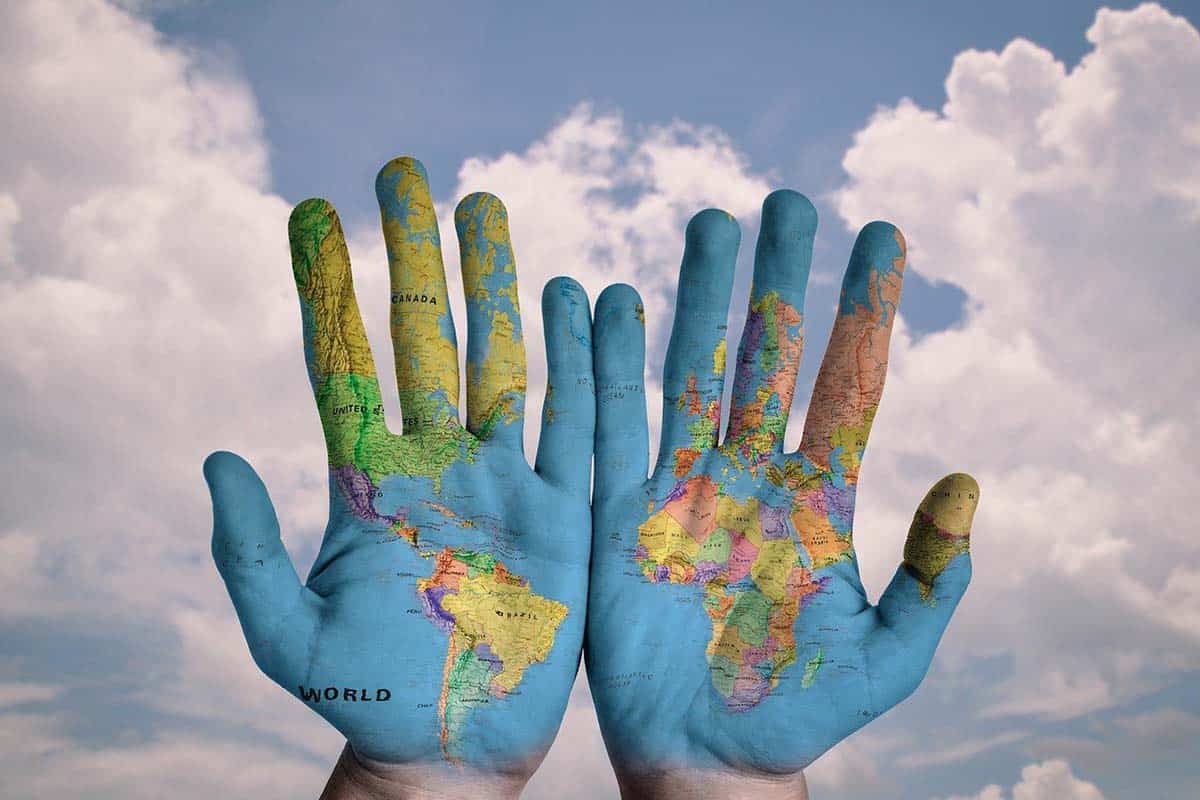How Does Globalization Affect Your Life? The Positive And Negative Effects
Share
Globalization has become part of the modern world, but many are yet to understand how it affects their lives.
People from the U.S. can buy products from China from the comfort of their homes. Communicating with other people thousands of miles away is a breeze. You can even find out about events happening around the world from the comfort of your home. All you need is an internet connection.
Globalization affects every facet of our lives. These include educational system, healthcare, economy, jobs, technology, and others. And shockingly, these impacts could be positive or negative.
So, how does globalization affect your life? Keep reading to find out.
What Globalization Means
When experts say, the world is a global village, what they mean is that people worldwide are connected via various technologies and programs. Before now, it was challenging to communicate with someone thousands of miles away in real-time.
Now, globalization has changed everything. You can interact with whoever you like from the comfort of your home. It’s now easy, quick, and much more convenient.
Over 67.04 percent of the world’s population, which is approximately 5.25 billion people, uses mobile devices.
So, what is globalization? It’s a term that describes the rising interdependence of the world’s population, economies, and culture caused by cross-border trades, investment flow, information, people, and technology.
Globalization affects all countries, both developed and developing. It also affects everyone positively and negatively. That’s why it’s always a crucial subject for discussion. It has caused many changes and will do more in the future.
How Globalization Affects You Positively
Here are ways globalization has affected your life for the better.
Communication:
Globalization has transformed how the world interacts. Board meetings are via videoconferences, instead of the traditional way of meeting face-to-face. Each board member can live thousands of miles away and still participate in the discussion. Distance is not a barrier.
The only bottleneck would have been having a device that supports videoconference calls and stable internet service. But developed, including many developing countries, have taken care of these problems. Even the developing countries are stepping up.
Imagine if there weren’t devices or software to make such calls and you have to be physically present at the meeting. Embarking on such trips would be expensive, draining, and time-consuming.
Again, imagine what would happen if globalization hadn’t changed the way people communicate or shop online in this trying time. The fight against the spread of COVID-19 would have been more difficult than it already seems.
You can order for anything anywhere in the world and have them delivered to their doorsteps. This also made the sit-at-home order a bit more successful. The internet has also made banking and interacting with customer service agents a breeze.
Finding New Markets:
The focal point in starting a business is making sales. When you make sales, the business grows. Today, anybody can create a new business and find buyers for their products. You can even sell your products to people in different parts of the globe, provided they meet international standards.
So, finding new markets isn’t as difficult as it used to be, thanks to globalization. A manufacturer from China can buy goods from the United States of America and vice versa.
Engaging new talents:
Hiring overseas workers has also gotten a lot easier, thanks to globalization. Job seekers can learn about job opportunities abroad and even apply online. If qualified, employers can arrange call interviews and do the paperwork to bring the right candidate thousands of miles away.
For the records, an employee from a developing country may not earn as much as someone from a developed region. But then, the job opportunities overseas for people in these less developed regions are a welcome development. Employers in these developed regions are also benefiting from the cheap labor.
So, it’s a win-win for employers and job seekers.
Lower product prices:
Globalization has made it possible for manufacturers to find low-cost ways of producing goods. On the other hand, consumers now have a massive variety of choices to make. This helps to ensure satisfaction.
With lower prices, consumers in developing and developed regions can live better, purchasing goods with lesser money.
Makes people aware of global issues:
News about natural disasters and global warming are so easy to obtain. Almost everyone on the planet knows what these dangers are, including the natural disasters taking place in various parts of the world.
None of these would have been possible without globalization. Globalization made the world aware of the 2004 Tsunami that claimed 227,898 lives. Different countries, including the U.K., sent help to the troubled region after learning about the gravity of the damage caused by the natural disaster.
Deforestation, air pollution, and other human activities give rise to global warming. Experts have also warned about the dangers of global warming.
Today, a lot of people are aware of the benefits of tree planting. Governments are almost aiming for zero air pollution in the foreseeable future. Many top companies have started producing electric cars, which doesn’t cause air pollution.
Remote work:
Remote work has made many people consider quitting their 9 to 5 jobs. It has become so attractive, thanks to globalization. Remote jobs are flexible and offer diverse opportunities for people to earn a living.
As a remote worker, you can choose the job you like to do and take breaks without being scolded. This won’t be possible in a 9 to 5 job. Being a remote worker also allows you to manage other side hustles. It gives you a unique opportunity to generate more streams of income.
On the other hand, employers hiring remote workers gain access to a multi-culturally diverse workforce. By hiring remote workers, companies can lower the cost of running an office and improve profit.
Managing remote workers have also gotten a lot easier, thanks to tech advancement. There are programs employers can use to monitor the activities of remote employees. You can check the software at the end of each working day to see how your employees spent their time.
The COVID-19 pandemic halted business activities. Many shops were closed down, and some employees were asked to work from home. And all these were possible because of globalization.
Educational system:
Globalization has also had a massive impact on the educational system. It interconnects teaching systems across the globe. People from other parts of the world can go to school wherever they want.
Many educational tech gadgets are available and make student’s academic life easier. Through the help of these gadgets, students can understand complex subjects and get their assignments done.
You also don’t need to visit the library to have access to academic materials. The internet has virtually almost everything you need. This has also improved the spread of information and awareness about sensitive global issues.
How Globalization Affects You Negatively
Here are the diverse ways globalization is affecting people adversely.
A threat to cultural diverse:
Cultural diversity is what makes us unique as a people. But with globalization transforming every facet of our lives, the world’s cultural diversity is obviously under serious threat.
It is believed that globalization might one day drown out cultures, local economies, and languages. It might mold the world into the image of the capitalist West and North.
Many might be asking how this would happen. But let’s not forget that Hollywood films are replacing local ones in both developing and developed countries. Movies produced in Hollywood are also more likely to gain global success than films made in Bollywood or elsewhere.
Job insecurity:
Globalization has put many workers in fear of job insecurity. Manufacturing companies are now seeking ways to lower production costs. Many companies are also investing in robots, as they aim to use them in place of human labor.
Many companies have also relocated their production departments to countries where they can find cheaper labor.
Robots have taken over most jobs. What’s happening in the automobile industry is a good example.
Dangers of uncontrolled information:
Though globalization has made access to information much easier, the fact that it’s uncontrolled makes it a ticking time bomb. People trust anything they see on social media these days. Only a handful of people do care if such information is from credible sources or not.
We have seen the destructions that misinformation can create. In the U.S., we all witnessed how electoral malpractice talks in the November 2019 presidential election without evidence led to riots and invasion of the Capitol.
Thousands of people have died due to false information. A lot of people have had to evacuate their homes due to false alarms.
Conclusion
Globalization is affecting every facet of our lives, positively and negatively. It affects our economies, education, culture, businesses, and personal lives.
However, we must make proper use of every available tool globalization has given us to improve our lives and society. Students should take advantage of educational gadgets to enhance their academic performance. Those in business should also do the same.

















